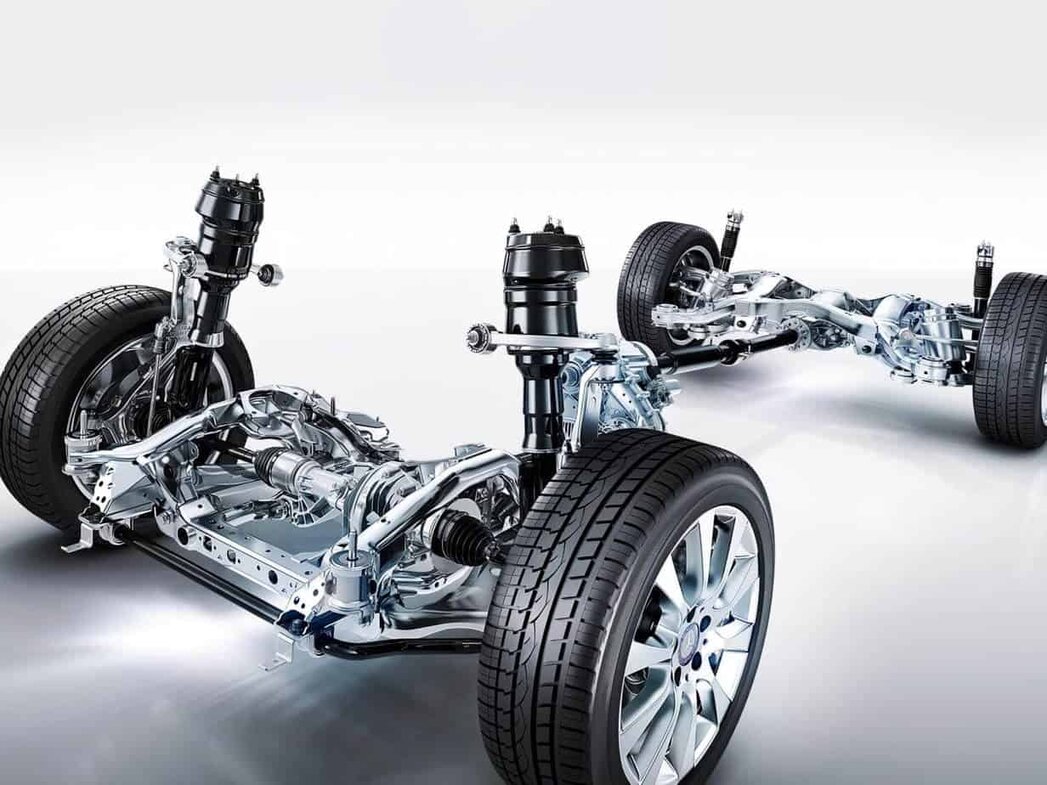Causes of car steering wheel vibration:
- Improper wheel installation
When the steering wheel is unstable, the first thing to check is the tire. If this part is misaligned, damaged or of poor quality, it will cause an imbalance between the wheels. It makes drivers easily notice the vibration of the steering wheel, even the entire car when moving from a speed of 60 km/h.

Improper tire installation is one of the causes of steering wheel vibration. Illustration photo
- Unbalanced wheel
After a period of use, the tension of the wheels will no longer be uniform or the tire surface will wear unevenly due to not rotating the tires or rotating them incorrectly, leading to poor contact with the road surface, which is also the cause of vibration and shaking of the steering wheel.
- Suspension system
The suspension system is an important part of the smooth operation of a car. It eliminates vertical vibrations and helps to limit mechanical effects on the frame and metal parts when the car goes over uneven roads. Vibrations are often caused by corroded parts, worn shock absorbers, loose connections or imbalance of the steering shaft.

The phenomenon of shaking the steering wheel of a car can occur due to the details of the suspension system such as: struts, shocks, grooves...
- Brake problem
Brake discs that are bent, warped, or unevenly worn cause the brake pads and brake calipers to not tighten tightly on the brake discs, or brake discs that are not cleaned and covered with mud, which can also cause the steering wheel to vibrate. If this is due to the brakes, the steering wheel will vibrate when the car is moving at high speed, when the brakes are applied, or there will be a burning smell after stopping the car.
- Engine compartment operation is unstable
A car's steering wheel shaking or jerking when accelerating can be caused by problems in the engine compartment such as: loose or broken spark plug wires, dirty air filters or spark plug filters that do not have enough air, fuel or spark needed for engine operation...
How to fix car steering wheel vibration effectively:
- Tighten and balance tires
Incorrect tire pressure will reduce the wheel's grip, and cause the four wheels to operate unevenly, creating deviations that cause vibrations throughout the entire vehicle's movement, especially vibrations in the steering wheel.
Car owners should take their cars to a professional repair center to check and rotate the tires every 5,000 - 10,000km, depending on the tire type, as well as adjust the compression and balance of the car's 4-wheel drive system. In addition, to be able to regularly monitor tire pressure and ensure that the tires are always properly inflated, car owners can install a pressure sensor.
- Rubber foot maintenance
After a period of use, the rubber pads inside the car's engine mounts can wear out, causing the car to move unevenly. At the same time, it creates collisions between internal engine parts and impacts the car's frame. Therefore, causing the steering wheel to vibrate when operating the car.
When this happens, the car owner should check the quality of the machine's foot and replace it if the rubber foot is worn.
- Check Tie Rod
Automobile tie rod is also known as Ball Joint, an important part in the steering system. This part can also be understood as a ball joint - a part that affects and directs the wheel (one end is a ball joint).
If the rotor blade of the tie rod is faulty, when moving, the car's steering wheel will vibrate, the car will not steer properly and even lose control of the steering wheel.
Source
































































































Comment (0)